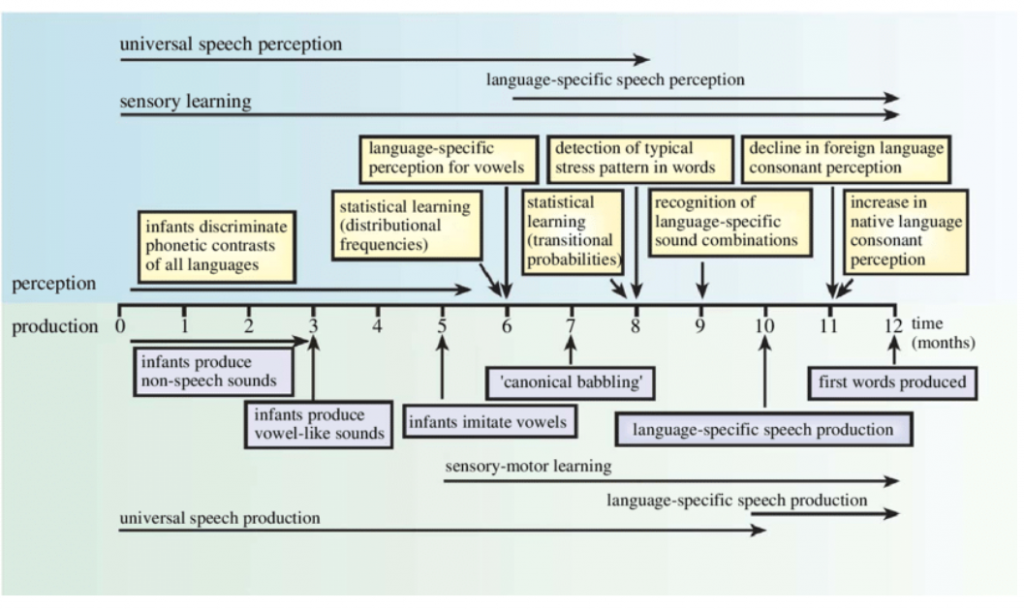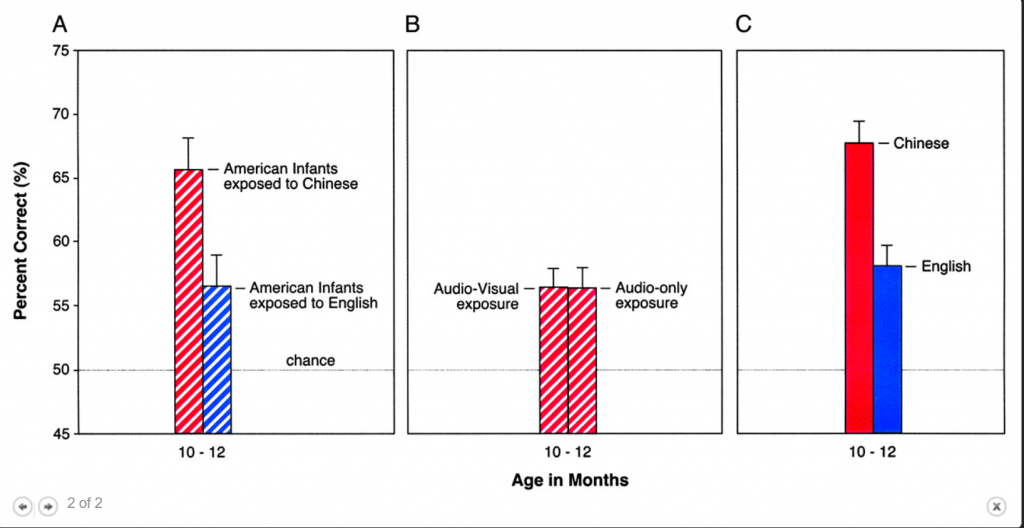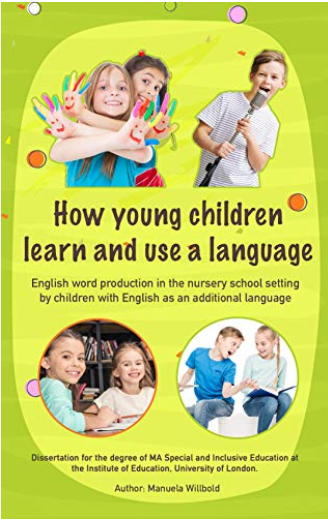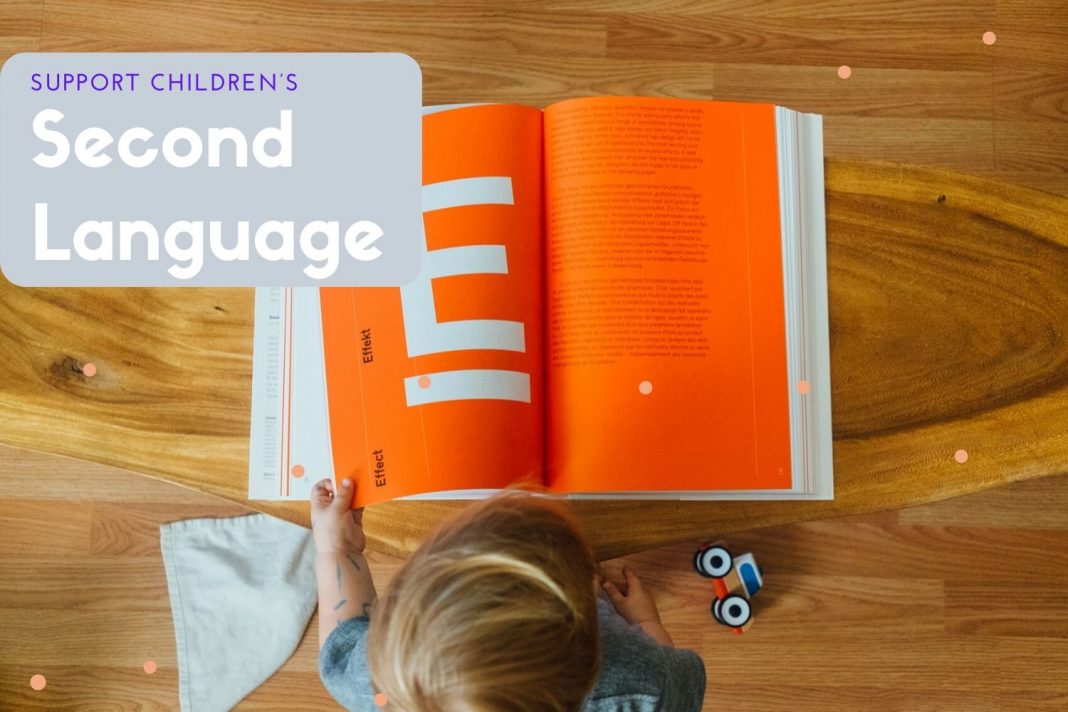As chief editor of the UK Education Blog and an early childhood educator with nearly 20 years of teaching experience, I was kindly invited to discuss the topic of multilingualism in today’s families with my good childhood friend and professional translator Alexandra Bekavac, who raises her children speaking her mother’s native language, Spanish, and her native language, German.
Together we tried to answer questions many parents ask us with regards to the do’s and don’ts of teaching methods for bilingual or multilingual upbringing.
Here’s what we came up with, including links to some further reading and research in this field.
FAQ 1: Can the child catch up with the language of the country of residence in school while speaking a different language at home? What is your observation from a professional point of view?
Absolutely, if the parents give the child enough time to immerse in the language. You can see that research clearly indicates that a language can only be learned if we immerse in it and are exposed to it regularly as a child. See this timeline of language acquisition and discrimination in the first year of life for reference.

You can see here that at around 11 months of age the child’s foreign language perception begins to decline if it only is exposed to one language and that the native language perception increases. So, the universal speech perception makes way for more language specific speech perception so that the child acquires that main language best. However, if at home it is exposed to two or three languages simultaneously, this speech perception model changes as you can see in this research:

The speech discrimination of American children exposed to Mandarin (red stripes left side) clearly shows the impact on their language learning compared to the control group in blue stripes: The graph in the middle shows the speech discrimination stagnated without language input from a person but only from songs or videos. The left graph shows speech discrimination by monolingual learners. As you can see, English native children could discriminate Mandarin almost at the same level as Mandarin native children when exposed to the language through human contact.
In my professional opinion, I can confirm such findings and I always encourage parents to speak their native languages with their children from birth. They always catch up with the language spoken at school and might be slightly delayed academically initially when starting nursery or school, but as soon as they become more confident in the second language, their overall learning at school is not hindered, but in my experience, even improved. They often demonstrate more resilience and tolerance towards others and learning another language is much easier for them.
If parents are concerned, then they have the option to read to their child in the language of the country of residence to offer that extra support at home for the school learning.
FAQ 2: What advantages and disadvantages can emerge from learning different languages as a young child?
Language acquisition and learning happens very naturally as a child and according to research the best time to immerse a child in different languages is between birth up to the age of 10 years. During that period the child will acquire the language through hearing and speaking it every day. It won’t have to study the grammar, vocabulary and language rules to learn it and this is the major benefit.
Apart from that, research has also found that children growing up speaking different languages find it easier to switch between language systems and this enables them to learn more languages much more easily later. Some research even indicates that multiple language learners develop improved music skills through identifying speech patterns and rhythms better.
switch between language systems and this enables them to learn more languages much more easily later. Some research even indicates that multiple language learners develop improved music skills through identifying speech patterns and rhythms better.
You can find such evidence in my dissertation “How young children learn and use a language” where I show through my own research project that social interaction plays a vital role in language acquisition, be it the first, second or third language the children are learning.
You can find my dissertation published on Amazon – click here!
I haven’t observed many disadvantages, apart from the child not being able to communicate in the new language it is learning right away. Depending on the child’s personality this can lead to some initial insecurities or isolation, but with the support of the teaching staff and parents, the child overcomes this as soon as they feel more confident to use the second language spoken at school.
Here are some more possible disadvantages that people have observed, but as I said, they are very minor and shouldn’t stop any parent from continuing to speak their native language with their children.
FAQ 3: Why is it so important for the child to learn and accept its parent’s native language?
I personally feel that a language is such a big part of the culture of a country and it transports so much more than just communication. Wherever I have worked, we would invite parents to school, reading stories in their native languages and the children would feel a sense of identity. They would learn that many people are different and that it makes them special to speak different languages.
When parents doubt whether to speak their native language with their child, I always explain to them that it would be such a loss. What if their child can’t communicate with grandparents or other family members? What if their child can’t converse with others when visiting the home country of the parents? Wouldn’t they feel isolated and not part of the family?
Speaking a language together has so much more meaning and it connects the family, even if some members are far apart from each other. It gives the child a sense of belonging and even if the child decides not to speak it, it will still have the ability to use it and learn additional languages or skills.
FAQ 4: Why do you think some children refuse to answer in their parent’s language?
What I have observed is that especially if the parents speak the language of the country of residence at home with each other, maybe because they both also are different native language speakers, then the child automatically feels that this is the “main” language as it also speaks it at school mainly. Accordingly, the language exposure in the parent’s native language is reduced and the child will not feel as confident using or speaking it.
Most parents see their child speaking their native language when they visit their home country where everyone will speak that language and it will be the main language spoken in the child’s environment. Another aspect worth mentioning is that the appreciation of the parent for their native language matters in my opinion. If the child observes that their parents don’t often use it and don’t enjoy speaking it, it also impacts the child’s love and respect of the language.
That’s why Alexandra is the best example! She is consistent with speaking Spanish with her sons she absolutely loves her Hispanic heritage and celebrates it at any given opportunity. She also tries to visit her family in Mexico every year for a longer period and this gives her sons the perfect opportunity to immerse in the Spanish language and culture.
We hope you enjoyed our interview and that we could provide some useful ideas and suggestions. You can watch it in full here:
Author Profile

- Editor in Chief
- Blogger and Educator by Passion | Senior Online Media & PR Strategist at ClickDo Ltd. | Contributor to many Education, Business & Lifestyle Blogs in the United Kingdom & Germany | Summer Course Student at the London School of Journalism and Course Instructor at the SeekaHost University.
Latest entries
 ed techMay 11, 2025Best 5 STEM Subjects Apps for Teenagers
ed techMay 11, 2025Best 5 STEM Subjects Apps for Teenagers careerApril 15, 2025Top 6 Student Side Hustles To Earn While You Learn
careerApril 15, 2025Top 6 Student Side Hustles To Earn While You Learn careerMarch 11, 2025The Smart Student’s Guide to Picking a Degree That Actually Pays Off
careerMarch 11, 2025The Smart Student’s Guide to Picking a Degree That Actually Pays Off ed techFebruary 19, 2025How AI Voice Generators Are Transforming the E-Learning Industry
ed techFebruary 19, 2025How AI Voice Generators Are Transforming the E-Learning Industry







